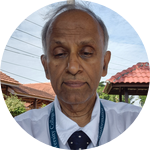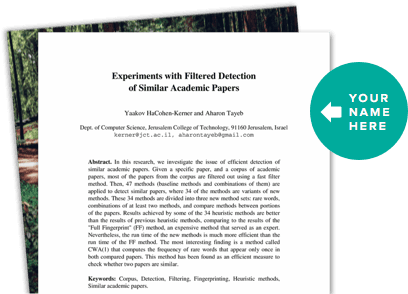About This Project
Current practices and systems for type 2 diabetes (T2D) management do not allow for real-time improvisations to occur. The unpredictability of life events in the daily routine of T2D individuals call for real-time adaptability. We plan to assist and empower people living with T2D via a digital platform powered by with a compendium consisting of an evidence-based "social vaccine" derived from lived experiences (an extension of a 5 year research project at Monash University).
Ask the Scientists
Join The DiscussionWhat is the context of this research?
The optimal management of T2D depends on the situational context in which self-care processes occur and where social determinants evolve. The prevailing reductionist philosophy of “medication intensification” aimed at achieving strict HbA1c targets, more often than not, neglects the complex nature of T2D. This “glucocentric” approach lacks effectiveness in world where numbers of T2D cases remain unabated.
The management of T2D rests on our clear understanding of specific human elements that are either malleable or resistant to change. This complex pursuit involves the active profiling of what defines the innate personality, basic expectations, and the living experiences of people with T2D.
By design, our holistic approach captures the unpredictability and ever-changing life events that govern outcomes in T2D individuals. Our project seeks to provides real-time insights in managing T2D, forming a precursor to greater participatory involvement in the community.
What is the significance of this project?
Long-term outcomes of this project will be the integration of 1) evidence-based social health/psychological determinants and 2) a novel diabetes self-management inventory (the foundations of a "social vaccine"). Our goals include the creation of a real-world, primary preventive tool to facilitate T2D management using a multipronged approach; development of a centralised platform to screen, predict, and forecast diabetes trends; intuitive screening, prediction and surveillance solutions based on predetermined indicators based on an individualised person-centered profile; and insights into the synergistic relationship between the diabetes, general health and self-management status. This project is the precursor developing an adaptable and scalable platform providing a snapshot of diabetes status in this region, especially in Malaysia.
What are the goals of the project?
We are developing a digital portal informed by composite scores derived from the ASQ-DM and IBM-DM projects. These scores encapsulate the core phenomenon of self-management of T2D, assessed through a series of evidence-based online surveys that have been rigorously tested for for psychometric/scientific validity.
This mobile-friendly digital web-portal allows individuals living with T2D to visualize their self-management “hotspots”, which reflect both internal and external realities (behavioral patterns, emotional states, social contexts, and environmental factors). These are benchmarked against clinical/behavioral metrics and best-practice disease algorithms developed by the lead researcher.
Ultimately, all of this will culminate in the development of a dynamic algorithmic source code powering a Digital Health Observatory—an open-access, community surveillance tool that identifies self-management vulnerabilities while aligning with contemporary human values.
Budget
Research personnel cost
- Lead researcher - Oversee the entire project and validate the digital blueprint (alongside research assistant) for dual language functionality
- Research assistant - Work with the research team to design the blueprint or algorithm for integration into the digital platform, perform data analysis and management
Prototype development of a real-time, online digital health observatory
- Conversion of the evidence-based self-management roadmap into a digital application and website that can be disseminated widely to the population
- Construction of a dynamic platform engine and redraw all flowchart diagrams that will be integrated into the digital ecosystem/matrix
Prototype development of a phone-based app and integration with digital health portal
- Integration of novel self-management tools (from current project) into a phone-based app
- Real-time observation of diabetes trends, and ease of follow up with healthcare providers
Endorsed by
 Project Timeline
Project Timeline
The project will span about one year, with possible delays from issues like code bugs or prototype revisions. It will deliver a real-time, interactive portal showing trends related to internal and external factors affecting people with Type 2 Diabetes (T2D) in Malaysia. This will lay the groundwork for Phase 2, which involves developing a digital app to connect the community with the platform.
Feb 22, 2026
Project Launched
Apr 01, 2026
Milestone 1 - Planning stage (preparing the research environment for the project)
Jun 30, 2026
Milestone 2 - Conversion of real-world data into a digital algorithm from the book project and research data into a digital portal (in preparation for machine learning)
Feb 14, 2027
Milestone 3 - Consensus or agreement on the final proof-of-concept of the ecosystem and drafting of specifications
Apr 24, 2027
Milestone 4 - Development and pilot/functionality testing of digital platform (the Digital Health Omnisphere Portal)
Meet the Team
Affiliates
Team Bio
Monash University, Malaysia
Dr. Jeevitha Mariapun - Research co-lead
Dr. Sentil Gopal - Project manager
National University of Malaysia
Associate Professor Caryn Mei-Hsien Chan - Feedback related to psychological interventions and research methods
Ascension Innovation
Andrew Teng - Digital technology and interface expert
Yogarabindranath Swarna Nantha
Yogarabindranath currently holds the position of Senior Lecturer in General Practice. Before joining Monash University Malaysia, he worked as a GP with the Ministry of Health Malaysia for 15 years. He also served as a primary care researcher during his tenure with the public
healthcare services, closely collaborating with the National Clinical Research Centre, National University of Malaysia and International Medical University
He earned his medical degree (MBBS) in 2005. He completed training in health management (MBA) in 2011 and obtained his Membership from the Royal College of General Practitioners (MRCGP) in 2012. In appreciation of his contribution to the advancement of the science of general practice, he was awarded the Fellowship of the Royal College of General Practitioners (FRCGP) in 2019. After becoming the recipient of funding from the National Institute of Health Malaysia, he began working on his PhD project at Monash University since 2018. The subject matter of his thesis involves the development of a comprehensive self-management behavioural model in individuals with Type 2 diabetes. On February 2022, he was awarded a PhD in General Practice from Monash University upon completion of his thesis.
Between 2019 to 2024, he spearheaded a project to design a unique set of intuitive algorithms for managing common clinical conditions. To that end, he became the editor and contributor of an international multi-authored, peer-reviewed, evidence-based General Practice handbook (Screen, Diagnose, Manage and Monitor; Springer-Nature) to be published in August 2025. Currently, Yogarabindranath and his team are working
on research related to preventive health, focusing in primary prevention interventions in areas of digital mental health, non-communicable diseases, behavioural change and profiling of self-management behaviour.
He is currently the Asia-Pacific Representative for the World Organization for Family Medicine (WONCA) Working Party for Research.
Lab Notes
Nothing posted yet.
Additional Information
This project is part of a larger initiative called the Digital Health Omnisphere (DHO) led by the lead researcher. This initiative is the precursor the development of a research cluster at the Global Population and Health department at Monash University. We are working alongside our digital health partner, Ascension Innovation, to integrate this novel tool into an overall seamless preventive health ecosystem.
Project Backers
- 1Backers
- 2%Funded
- $250Total Donations
- $250.00Average Donation


